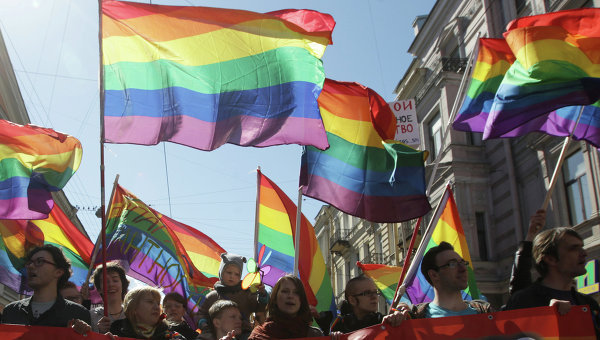MOSCOW, November 7 (RAPSI) – The Court of Justice of the European Union (CJEU) held Thursday that for purposes of an asylum determination, homosexual applicants can constitute a particular social group that may be persecuted on account of their sexual orientation under certain circumstances, the court announced in a statement.
Referring to the Geneva Convention on the status of refugees, a 2004 European directive defines the term “refugee” in relevant part as “a third country national who, owing to a well-founded fear of being persecuted for reasons of race, religion, nationality, political opinion or membership of a particular social group, is outside the country of nationality and is unable or, owing to such fear, is unwilling to avail himself or herself of the protection of that country.” The directive goes on to stipulate that any such act of persecution must be “sufficiently serious” by its “nature or repetition as to constitute a severe violation of basic human rights.”
A Dutch court reached out to the CJEU for its assessment on the meaning of the directive in the context of a case currently pending in the Netherlands. The question asked was whether homosexual third-country nationals could advance the theory of being members of a “particular social group” in accordance with the directive.
The Dutch case centers on three nationals from Sierra Leone, Uganda, and Senegal, each of who is seeking refugee status in the Netherlands based on the theory of a well-founded fear of persecution owing to their sexual orientation.
The CJEU statement notes that homosexual acts are punishable in each country with serious penalties, including life imprisonment in certain cases.
The CJEU held Thursday that, “first of all, that it is common ground that a person’s sexual orientation is a characteristic so fundamental to his identity that he should not be forced to renounce it. In that connection, the Court recognises that the existence of criminal laws specifically targeting homosexuals supports a finding that those persons form a separate group which is perceived by the surrounding society as being different,” according to the statement.
The judgment stipulates, however, that a violation must be sufficiently serious in order to rise to the level of an act of persecution. Not all perceived violations of a homosexual applicant’s rights will reach that level of seriousness.
Specifically, the judgment asserts that the existence of legislation criminalizing homosexual acts will not rise to the requisite level of seriousness in and of itself. If a prison term accompanies the legislative provision criminalizing homosexual acts, however, that may constitute an act of persecution, the statement explains.



